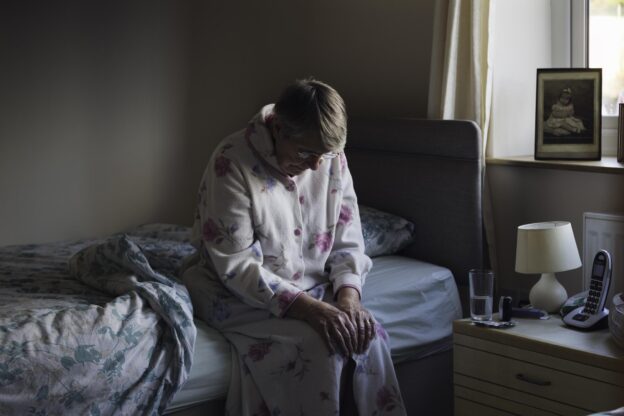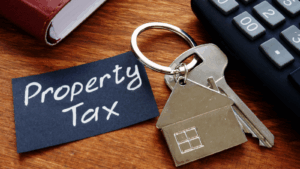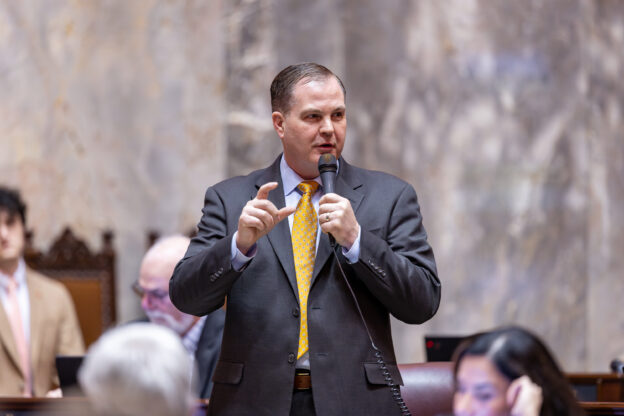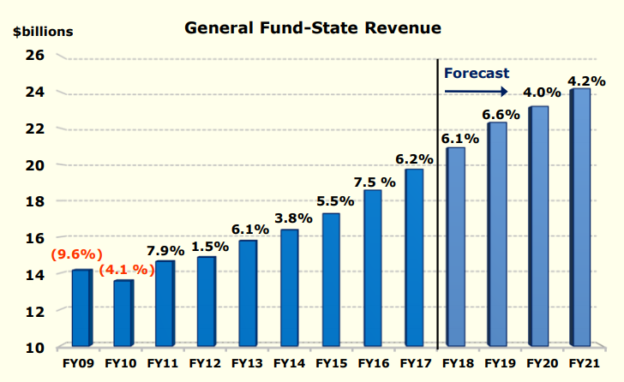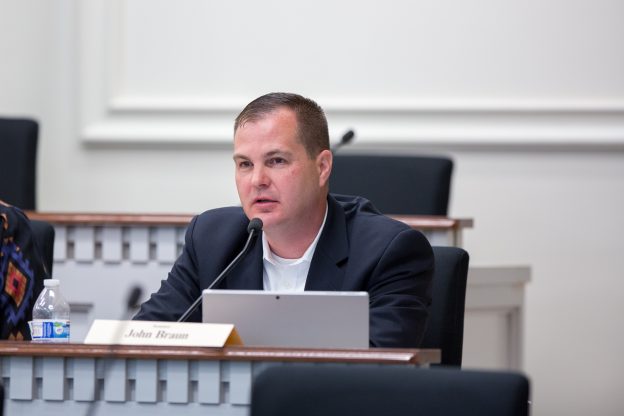Dear Friends and Neighbors,
Over the past year, I’ve written to you multiple times about the new and higher taxes Democrats sought to impose. While Senate Republicans successfully fought off billions of dollars’ worth of harmful tax proposals, the Democrat majority still managed to push several across the finish line.
Many of these new taxes have already taken effect—or will soon.
One of the worst, and least known, is a steep per-bed tax hike on nursing homes and long-term care facilities. Depending on the type of facility, the tax rate is doubling or even tripling. That amounts to an extra $126 million burden to our long-term care system over the next four years. Rather than cover that cost, the state is forcing care centers to pass it along to their most vulnerable residents—aging, sick, and dying Washingtonians—and the families who support them.
The irony? The vast majority of workers in our state are already being taxed through their paychecks for “Washington Cares,” a long-term care program Democrats claimed would ease costs. But by increasing the cost of care through this new tax, they’ve made that already-weak benefit even less meaningful. Their own actions undercut the very justification they gave for the program.
It didn’t have to be this way.
Senate Republicans proposed a balanced, responsible budget that didn’t raise a single tax and didn’t cut a single service. But when the opportunity came to debate it on the Senate floor, every single Democrat voted “no.”
Instead, the majority passed a bloated $78 billion budget that hikes taxes by $12.5 billion and cuts billions from essential services. The budget cut funding for the completion of a new 45-bed psychiatric facility and a governor’s veto ended funding for a care center for drug-addicted newborns and. Those critical services were traded away for $4.5 billion in new spending.
To make matters worse, their budget is already out of balance—just months after it passed—thanks to the latest state revenue forecast. The result? The governor is now contemplating calling for a special session to “fix” what Democrats broke.
And how do they plan to fix it? By raising even more taxes and cutting even more services.
I must ask the question: How much of your money is enough? Who will they burden next? How many more vulnerable people will suffer because Democrats insist on taking more and delivering less?
If a special session is called, I’ll make sure you know—because you’ll want to pay close attention to the excuses they give for taking even more from taxpayers.
Had the Senate Republican budget been adopted, we wouldn’t be in this mess.
And if Republicans were in the majority, the budget never would have been $7.5 billion in the red to begin with (to set the record straight, the budget shortfall was NEVER $16 billion; Democrats made that number up, and they’re still using it)
You may learn more about the taxes now taking effect by visiting our website.
If you have questions, you may email me at john.braun@leg.wa.gov.
Sincerely,
John Braun
Sales tax increases too?
Democrats passed a sales-tax increase of $4 billion over four years, and it’s no mystery who will pay for it — you, the consumer.
Just a few of the services that will now add sales tax to your bill:
- Childcare
- Legal services
- Cleaning
- Security
- Computer/IT services
At a time when the average cost of childcare for an infant in Washington is $20,000 a year, Democrats decided to tax it.
The cost of food, health care, housing, prescription drugs and other everyday goods will take a bigger bite out of your wallet.
You get a little more time to prepare for this tax because it doesn’t take effect until October 1, but it will affect everyone in Washington.
What about the gas tax?
The following is an excerpt from my latest commentary in The Chronicle.
Many people are unhappy about the recent hike in the state fuel tax, especially since the average prices for gas and diesel were already much higher here than in every state except California and Hawaii.
But while that 6-cent jump is big compared to the other gas-tax increases our state has seen over the past century, the main drivers behind Washington’s inflated fuel prices continue to be the cap-and-tax law and the low-carbon fuel standard, both approved by majority Democrats in 2021.
Taxing your home
We are in the middle of a long-term, serious affordable-housing crisis, but Democrats keep passing laws to increase your property taxes.
This time, it will cost taxpayers $1.6 billion, and it won’t just affect homeowners. It will hurt renters, too, as property owners have to pass along the expense through higher rents.
This latest move lifts the limit on the amount local governments can increase your property taxes each year through levies, taking us back to square one in the fight to close the education gap between rich and poor school districts.
Some people ask, “What’s wrong with voters deciding to tax themselves more?”
With regards to education funding, a district with residents who live in expensive houses and can afford to pay higher taxes could pass a higher levy rate and give their schools more money. However, a district with lower property values and a lower median income may not be able to afford to increase their levy and would go without the extra funding.
Their students wouldn’t have the same quality of education or opportunity as those in the wealthier areas.
This makes the level of education funding a district receives dependent on their zip code, widening the gap between students from different economic backgrounds.
This is unfair and this is why, under the “McCleary decision,” we leveled the playing field by capping local levies at 1%.
However, districts that can afford to pay more were unhappy with the cap and they just happen to be represented by Democrats, who are in the majority.
The irony in this situation is that Democrats claim to want equity and this policy is anything but equitable.
Taxing your joy
Several of the taxes target things that give people joy in life. If you enjoy it, there’s probably a tax for it.
- A 38% increase in the price of hunting and fishing licenses (Effective July 1)
- A $100 increase in the cost of marriage licenses (Effective July 27)
- An increase in the cost of liquor licenses, costing customers of bars, restaurants, grocery stores and liquor stores more than $8.5 million per year (Effective July 27)
- 50% increase in the Discover Pass, which is required to park in Washington state parks
Ferguson complicit in largest tax increase in state history
The Seattle Times criticized Gov. Bob Ferguson for signing the Democrats’ budget that included $12.5 billion in state and local taxes — the largest tax increase in state history.
Although the Gov. Ferguson said this wasn’t how he wanted to start off as governor, he also said he was proud to sign the budget. Which is it?
Is he ashamed or proud of approving a $12.5 billion hit to the people of Washington?
Note: The editorial refers to $9.4 billion in taxes, which only accounts for the state tax increases.









